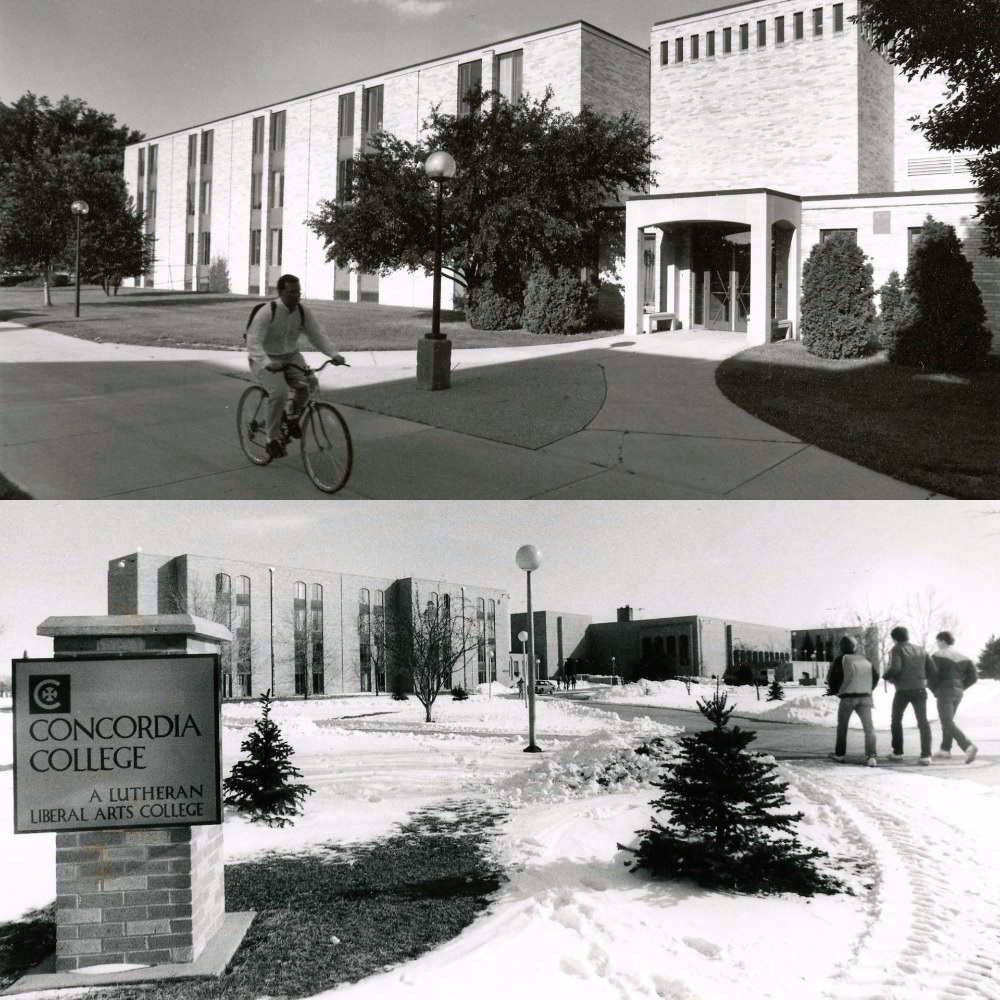 In 1968, Concordia College opened Hallett Hall, an all-women’s dormitory, along with Erickson Hall, an all-men’s dormitory. The dormitories were built as different sections of one complex. It was the first time since the college’s very early years, when its single building was home to both sexes by necessity, that men and women lived in such close proximity. Hoyum Hall was a former women’s dormitory that became the first building on campus to house both male and female students in 2008.
In 1968, Concordia College opened Hallett Hall, an all-women’s dormitory, along with Erickson Hall, an all-men’s dormitory. The dormitories were built as different sections of one complex. It was the first time since the college’s very early years, when its single building was home to both sexes by necessity, that men and women lived in such close proximity. Hoyum Hall was a former women’s dormitory that became the first building on campus to house both male and female students in 2008.